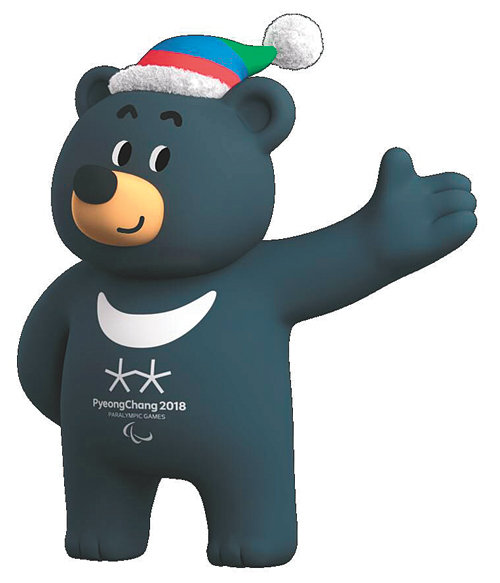Paralympics mascot Bandabi to boost sports for the handicapped
Paralympics mascot Bandabi to boost sports for the handicapped
Posted March. 09, 2019 08:29,
Updated March. 09, 2019 08:29

Bandabi, the official mascot of the 2018 Pyeongchang Winter Paralympics, will remain as the legacy of the event.
Saturday marks the first anniversary of the 2018 Pyeongchang Paralympics. Exercise is all the more important to physically handicapped people whose daily routines are challenges. With the number of people registered for handicaps having exceeded 2.5 million in Korea, increasing facilities that give easy access and in which those people can engage in sports activities without reservation is the best way. For this reason, construction work will start for 23 sports centers nationwide this year. Over the long-term, such facilities will be increased to 150 sites.
These facilities have been named “Bandabi Sports Centers,” which will be prefixed by the name of the respective local regions. Bandabi, which has been increasingly forgotten following the closing of the games, will thus continue to survive as a symbol of disabled people’s sports. Bandabi, the combination of “Banda,” which stands for the Asiatic Black Bear as symbolic animal for Gangwon Province, and “Bi,” which means a “memorial stone,” enjoyed immense popularity through the Pyeongchang Paralympics. The total revenue from sales of both the Pyeongchang Winter Olympics’ mascot Soohorang and Bandabi amounted to 29 billion won (25.5 million U.S. dollars).
“If those facilities are named a sport center for the handicapped, the local government operating such facilities comes to feel burden. Such a name also gives the impression that those ‘facilities are exclusively reserved for the handicapped,’” said Yong Pil-seong, chief of the handicapped people’s sports department at the Culture, Sports and Tourism Ministry. “On other hand, if those facilities are named without logical principle, the handicapped will often not be able to figure out the purpose. Hence, the sports authority determined that Bandabi is an ideal name since it can give a sense of familiarity and friendliness to the people. The handicapped are given preferential access to those facilities, but ordinary people can also use them together as well.”
In the wake of the planned expansion of those facilities, the ministry plans to spend a total of 1 trillion won (880 million dollars) to significantly increase physical exercise training for the handicapped timed, and to provide disabled people with coupons to receive sport lessons.
Seung-Kun Lee why@donga.com







